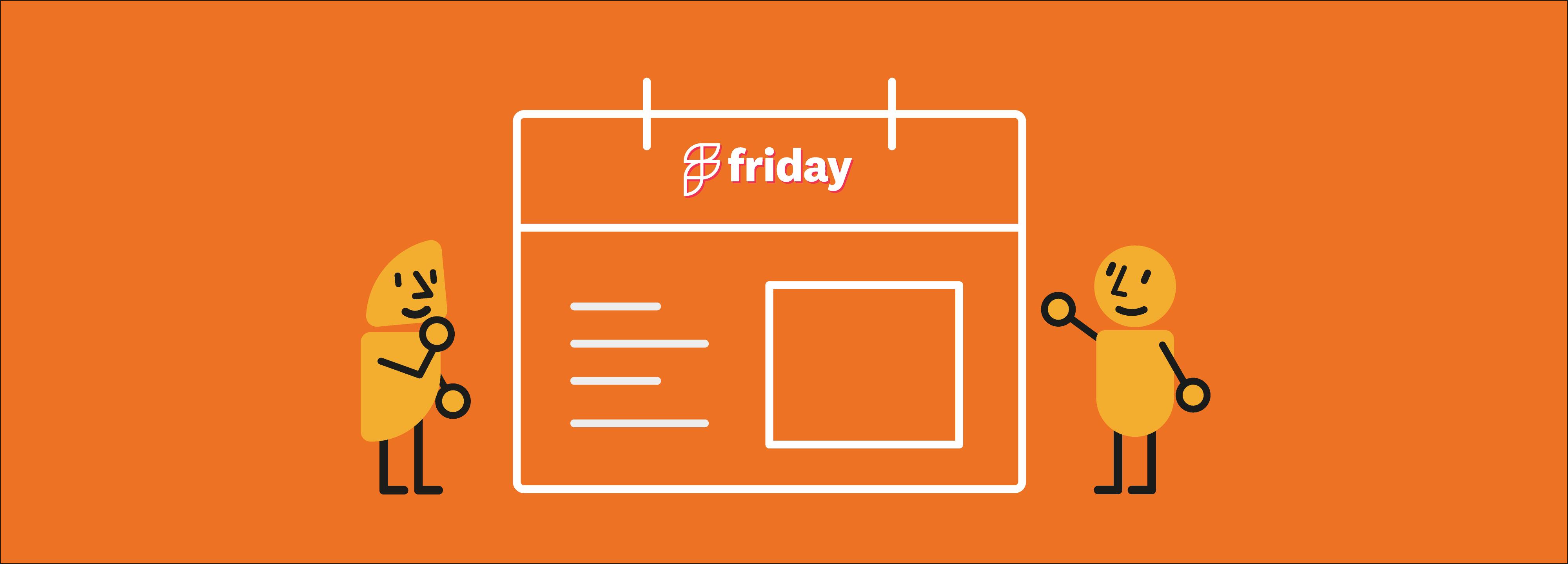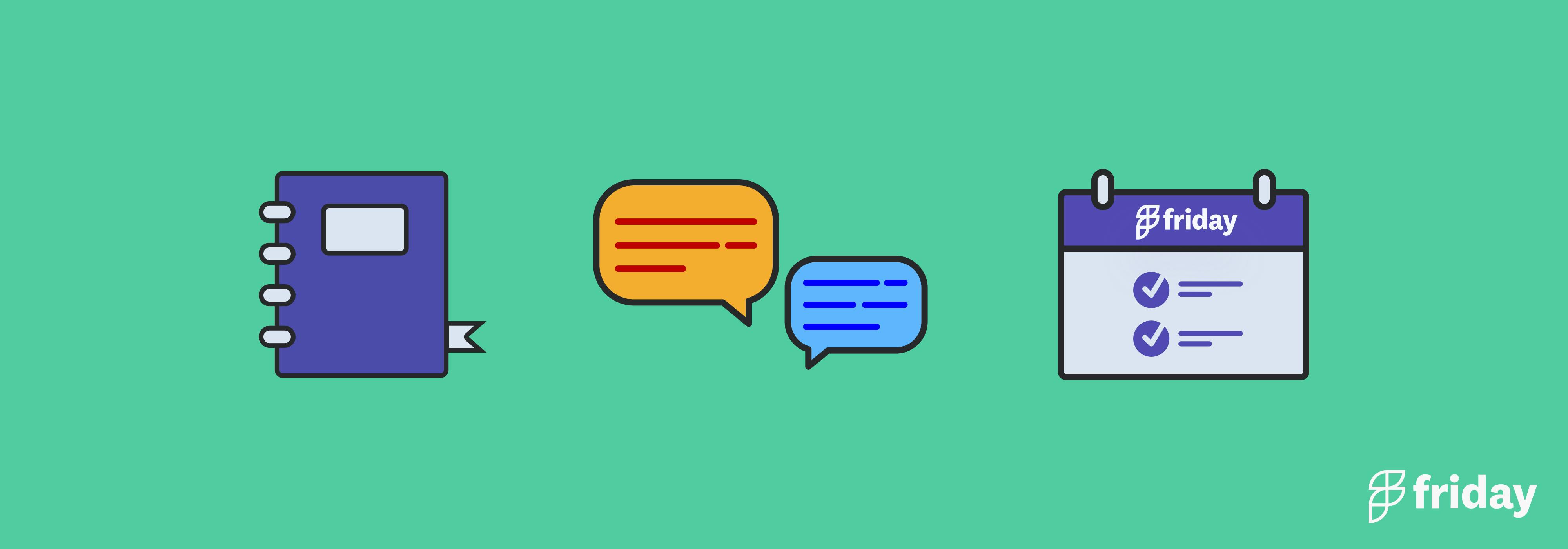Planner Ideas: 16 Things To Add In Your Planner

A good planner should also keep track of important dates and events, maybe even a list of groceries or to-do things for your home. The best thing is that this list should always be with you no matter where you go--find a daily planner app that's perfect for that.
What Should You Include In Your Planner?
1. Daily Task List
Task lists are very effective, especially if they are used regularly. They help you stay organized and keep track of things that need to be done – maybe even cross items off as they get done!
Don't forget to schedule tasks for every day, week and month so that there is enough time for them all. Making a checklist is easy, just write down everything that needs to be done (being realistic) in your planner.
Make sure the list is complete with items from the past week or month (if applicable). Then decide on a day or two of the week when you will go through this list and do everything on it.
Each time, check off each item as it gets done and re-schedule any unfinished items for at least another day (or week if needed).
This way, your planner becomes an actual record of progress – a way to see what's already been done, what's left to do and how much time there is left for it all. If there is no room in your planner for writing down all the tasks, then try using sticky notes instead!
2. Bullet Journaling
Bullet journaling combines many elements of this list all into one plan and system. Your planner is your command center for winning the day. As the same suggests, the daily planner is a place to see meetings, tasks, routines, and goals in one place. It's like the daily spread for those who use the BuJo method.
For example, you can create a personal routine where the responses roll into an index.You can see a running tally of responses like:
- Current Mood
- What's going on?
- Did you read today?
- What are you thankful for?
3. Goals
Goals are what keep you moving forward. They keep you focused on your target and help you achieve it. The best thing about goals is that they should be SMART – specific, measurable, achievable, realistic and timely. Without a plan how can you achieve goals?
You can think about these in two categories:
- Short term annual goals (one year or less)
- Long term annual goals (two years or more)
4. Daily, Monthly, Yearly Overview
Writing an overview of your day, week or month will help you reflect on what has been done and plan ahead for the next day, week or month. This makes your goals more tangible, it recharges your energy and helps you stay focused on what's important. Make sure to recognize your progress and outline things you can improve.
5. Visualizations
Visualizations are very powerful; our brain can't tell the difference between what we vividly imagine and what we actually do. So if you want to accomplish something, write down all the steps you need to take in order to get there. You can include a vision document in your planner as well – this way you will be reminded about your goals every day.
Make sure that each goal in your planner has a clear deadline so that it's easy for you to see when everything needs to be done by. If there's not enough time on your hands then try and prioritize tasks – again make sure that everything is divided into small manageable steps so that the plan is easier for you to follow through with.
6. Random Notes
Keeping track of the notes you have taken is very important. This helps you to keep your ideas organized and reflect on them later. Write down random things that come to mind, from grocery lists to a short note about something you might want to do in the future. Your planner should be used as a memory aid!
7. Home & Office
Organizing work can sometimes be stressful; it's hard to get everything under control and have everything done on time! Try including a list of tasks that need to be done at home (such as cleaning or organizing) so that you will do things in order as they appear on the list. The same goes for organizing at the office – make a similar list there too! If you have a job, it's always good to write down your tasks for the next day or week. This way, you will know what needs to be done and when.
8. Gratitude List
Research from Robert Emmons, a professor of psychology, suggests that taking a few minutes each day to write down three things that you are grateful for can have a profound impact on your state of mind and how you experience life. When done consistently, it can improve positive emotions, increase life satisfaction, decrease depression and increase overall well-being.
Your planner can be used as a gratitude journal where you write down three things you are grateful for every day when you start going through the checklist or the daily/weekly overview.
9. Passions & Favorite Things List
It's good to focus on things that you love and enjoy – it will help you achieve your goals much faster! Writing a list of your passions and favorite things is a great way to remind yourself of the things that are important to you. Maybe even make some notes about what you should do next weekend with your family or friends.
This list will help keep track of what you've accomplished lately and make you feel good about everything that has already been done. If there is something on your 'want' list and there isn't a way to accomplish it right now – move it to an "someday" section of your planner so that it remains in front of your eyes until the time comes when you can actually do it.
10. "My Perfect Day"
What does your perfect day look like? What would you do if you had all the time in the world and nothing on your schedule? Write down everything that comes to mind. It can be as silly as "eating pancakes for breakfast" or "flying on a plane." This exercise will help you figure out what activities are the most important to you and what are their priorities.
Keeping track of all these things may seem unnecessary, but it will make a huge difference in your life when you realize that this planner works perfectly for you! It's not just a bunch of notes – it's an organized way of thinking about how your life should be. It's your personal guide to keep track of everything that matters to you and reminds yourself why some things matter more than others.
11. Daily Affirmations
Affirmations are great for self-improvement. They help you focus on your goals and define what is important to you. These can be written down and read daily or said out loud in the morning before starting your task list for the day. It's a good idea to do them every morning, as they will set the tone for the day and allow you to get things done.
12. Motivation Booster
Motivation is hard to come by sometimes, especially when times get tough. It helps to keep a list of reasons why you want to achieve your goals and what you will gain when you do. This list should be somewhere where you can see it daily. It will make you think about how close you are to your goal and keep pushing forward.
13. Family & Friends
Consider keeping your family informed about your progress towards our goals (and maybe even show them what we have achieved). You can include things like family birthdays in your planner or write down notes about what you did together last week/month/year. Write down plans for future trips and activities!
14. List of Books to Read
Try to include a list of interesting books in your planner that will inspire you to read more. Don't forget to mark the ones that you've already finished reading to track your progress.
Write down some notes about the most important things you've learned from the book, if there's anything that can help motivate you or if there's any quotes that made an impact on you.
15. Bucket list
A bucket list is a record of all the things that you want to do before you die. It's not necessarily connected with your work, it can be anything: places to visit, books to read, movies and music to enjoy, people to meet etc. This activity will help you think about ways to improve yourself and make life more interesting.=
Think about ways in which you can accomplish some of the items on your bucket list: write down ideas and plans for each of them. It's important that you don't make this list too long! It should only include things that are feasible in the near future and also make sure that they won't conflict with each other or take too much time away from other tasks/responsibilities.
16. Fitness, Health and Nutrition
Taking care of your health is a great way to maintain balance and achieve your goals. This includes regular exercise, eating healthy food and working out on a daily basis. Your planner can be used to help you with all this. Some types of planners are specifically geared towards health and nutrition.
For example, many people keep track of their daily calorie intake or the amount of calories burned during exercises – this can be done by simply writing down the number of calories consumed and how much they moved in your planner. If you want to do more, try including a workout schedule or a list of healthy meals you should eat every day.


